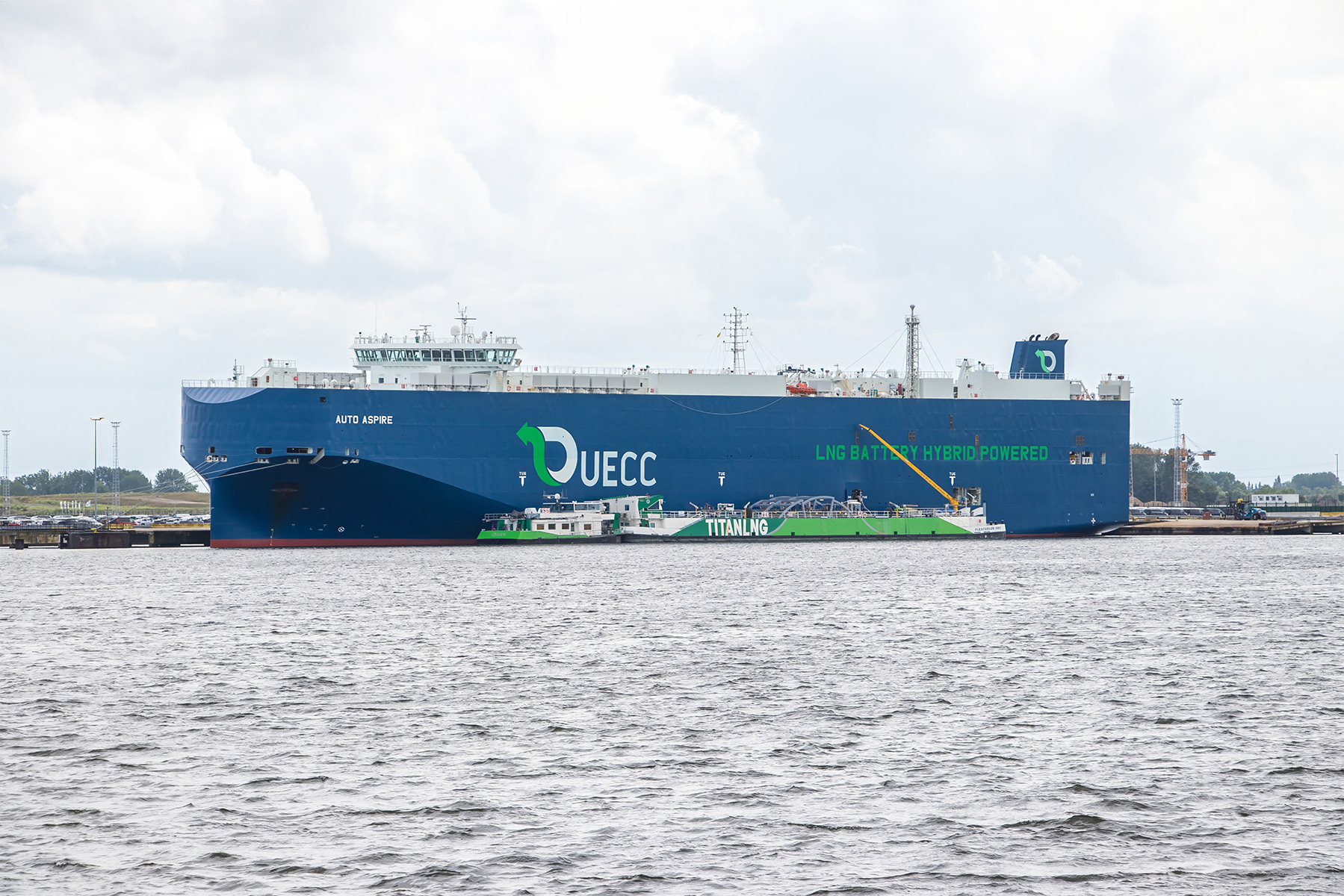This story requires a subscription
This includes a single user license.
Under the new agreement, Titan will deliver the vast majority of liquefied natural gas supplies to UECC’s multi-fuel ships in the form of liquefied biomethane or bio-LNG for the remainder of 2024 and then most of 2025.
Titan and UECC did not provide further details regarding the agreement.
This deal expands upon UECC and Titan’s established commitment to use bio-LNG.
Since July this year, over 95 percent of the fuel delivered to UECC’s PCTCs by Titan has been bio-LNG.
This results in the avoidance of more than 30,000 tonnes of greenhouses gasses emitted, the partners claim.
According to Titan’s analysis, the quantity of bio-LNG in 2025, which Titan and UECC are realistically targeting, will avoid more than 75,000 tonnes of greenhouse gases being emitted.
“That reduction is equivalent to the annual emissions of around 10,000 EU citizens or 540 million kilometers driven in an average car,” it said.
This transition to biomethane amplifies the success of UECC’s ‘Sail for Change’ sustainability strategy, as it will exceed its carbon intensity targets, which use the same metric as the industry’s forthcoming FuelEU Maritime regulation.
“In fact, the use of LBM will offer UECC overcompliance with FuelEU Maritime across its overall fleet, and so it is actively exploring pooling and banking options,” the partners said.
UECC expanding fleet
This move follows news that UECC has ordered two more LNG-powered hybrid PCTCs with a capacity of 4,500 ceu in China.
The newbuild order placed with China Merchants Jinling Shipyard Nanjing is for two firm multi-fuel battery hybrid vessels scheduled for delivery in 2028, with options for two more units.
If exercised, this would bring the number of LNG-powered newbuilds in the UECC fleet to nine after five similar deliveries within the past decade.
In October 2022, UECC took delivery of the third and final LNG-powered hybrid PCTC from China’s Jiangnan Shipyard.
With an overall length of 169 meters and a width of 28 meters, Auto Advance, Auto Achieve, and Auto Aspire each have a car carrying capacity of 3,600 units on 10 cargo decks.
The new vessels boosted the UECC dual-fuel fleet to five ships in total as it already operated two LNG-powered PCTCs, Auto Eco and Auto Energy, but these do not feature battery power.

